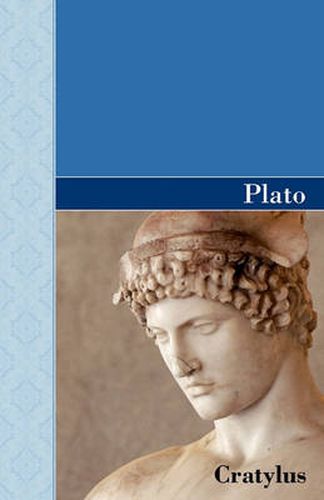Readings Newsletter
Become a Readings Member to make your shopping experience even easier.
Sign in or sign up for free!
You’re not far away from qualifying for FREE standard shipping within Australia
You’ve qualified for FREE standard shipping within Australia
The cart is loading…






Cratylus is Plato’s only foray into linguistic philosophy, examining the relationship between language and truth. Hermogenes and Cratylus take opposing views of the nature of language. Hermogenes claims that all names are conventional, having no intrinsic relationship to the objects that they name, whilst Cratylus holds that names do have a relationship with the objects of the world, and that study of a name leads to knowledge of the thing it names. Having heard both arguments, Socrates at first seems to side with Cratylus as he critiques Hermogenes position. However, he also ultimately critiques the extremity of Cratylus’ position, forcing him to admit some element of convention in the naming of things. Plato thus appears to strive for some middle ground between these Cratylus’ and Hermogenes’ extremes, but his position remains open to interpretation. A fascinating and unusual entry in the Platonic canon, Cratylus is of interest to scholars of philosophy and linguistics alike.
$9.00 standard shipping within Australia
FREE standard shipping within Australia for orders over $100.00
Express & International shipping calculated at checkout
Cratylus is Plato’s only foray into linguistic philosophy, examining the relationship between language and truth. Hermogenes and Cratylus take opposing views of the nature of language. Hermogenes claims that all names are conventional, having no intrinsic relationship to the objects that they name, whilst Cratylus holds that names do have a relationship with the objects of the world, and that study of a name leads to knowledge of the thing it names. Having heard both arguments, Socrates at first seems to side with Cratylus as he critiques Hermogenes position. However, he also ultimately critiques the extremity of Cratylus’ position, forcing him to admit some element of convention in the naming of things. Plato thus appears to strive for some middle ground between these Cratylus’ and Hermogenes’ extremes, but his position remains open to interpretation. A fascinating and unusual entry in the Platonic canon, Cratylus is of interest to scholars of philosophy and linguistics alike.